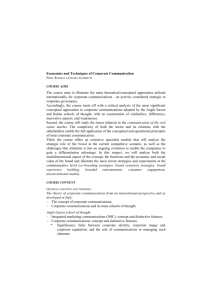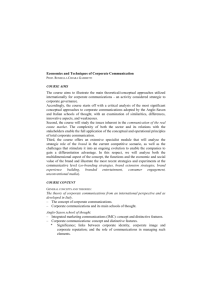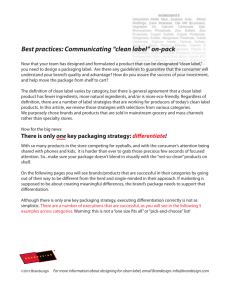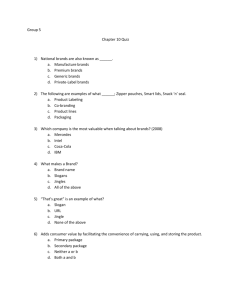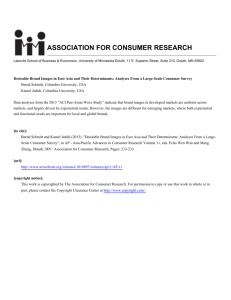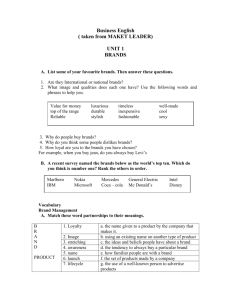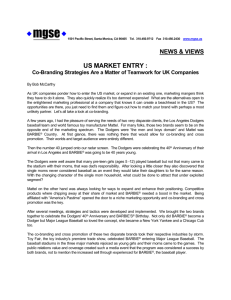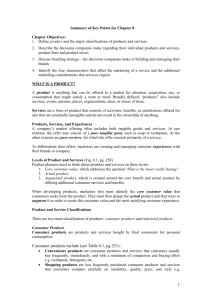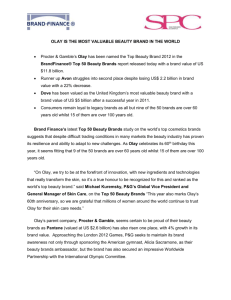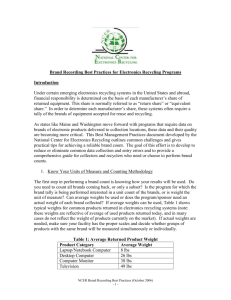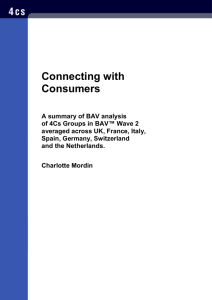Business and Management of Corporate Communications
advertisement
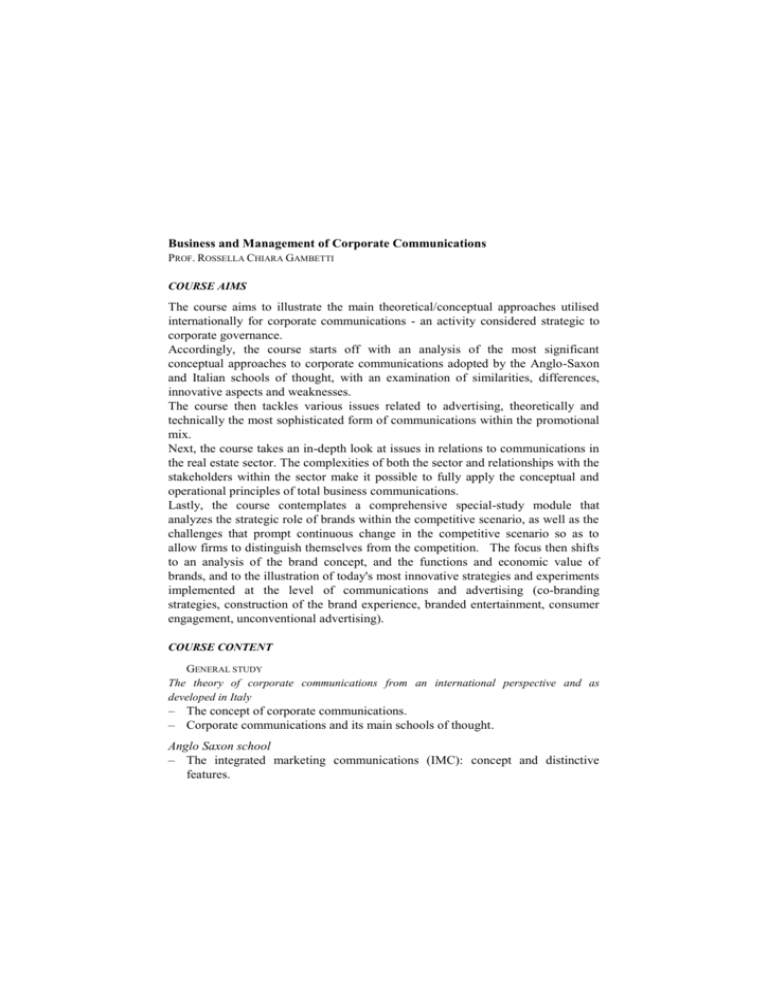
Business and Management of Corporate Communications PROF. ROSSELLA CHIARA GAMBETTI COURSE AIMS The course aims to illustrate the main theoretical/conceptual approaches utilised internationally for corporate communications - an activity considered strategic to corporate governance. Accordingly, the course starts off with an analysis of the most significant conceptual approaches to corporate communications adopted by the Anglo-Saxon and Italian schools of thought, with an examination of similarities, differences, innovative aspects and weaknesses. The course then tackles various issues related to advertising, theoretically and technically the most sophisticated form of communications within the promotional mix. Next, the course takes an in-depth look at issues in relations to communications in the real estate sector. The complexities of both the sector and relationships with the stakeholders within the sector make it possible to fully apply the conceptual and operational principles of total business communications. Lastly, the course contemplates a comprehensive special-study module that analyzes the strategic role of brands within the competitive scenario, as well as the challenges that prompt continuous change in the competitive scenario so as to allow firms to distinguish themselves from the competition. The focus then shifts to an analysis of the brand concept, and the functions and economic value of brands, and to the illustration of today's most innovative strategies and experiments implemented at the level of communications and advertising (co-branding strategies, construction of the brand experience, branded entertainment, consumer engagement, unconventional advertising). COURSE CONTENT GENERAL STUDY The theory of corporate communications from an international perspective and as developed in Italy – The concept of corporate communications. – Corporate communications and its main schools of thought. Anglo Saxon school – The integrated marketing communications (IMC): concept and distinctive features. – Corporate communications: concept and distinctive features. - Significance; links between corporate identity, corporate image and corporate reputation; and the role of communications in managing such elements. Italian school – Total business communications: concept and distinctive features. - The concept of a communications culture, the four related axioms, and the communications perspective in corporate governance. - Identity/image relationships and the methods for valuing the corporate image. - From communications perspective to total communications policy. - Planning and control of the total communications policy. Summary vision: comparison between the theoretical approaches illustrated with reference to corporate communications. SPECIAL STUDY Brands. Multiple dimensions, value and communications experimentation – The concept and functions of brands. – The dimensions of the brand's economic value (brand equity). – Experimentation in brand strategies: moving toward consumer brand engagement (co-branding; brand extension; brand experience; branded entertainment). – Advertising and its development over time. – The application of a touch-points approach to communications and the use of unconventional media: ambient communication. APPLICATIONS The students attending class on a regular basis will be required to take part in a series of seminars (10 ore) about the subject of “The new communications challenges regarding the publishing product” to be conducted by Stefania Vitulli. READING LIST Students attending class on a regular basis R.C. GAMBETTI-S. QUIGLEY (eds.), Managing corporate communication: a cross-cultural approach, Palgrave McMillan, Eastbourne (UK), 2012 (Chapters 1, 2, 4, 9, 10 and 13). Material published on the professor's web page (download area with password) Students not attending class on a regular basis E.T. BRIOSCHI, Dalla pubblicità alla Comunicazione d’azienda: problematiche, metodologie e questione aperte, Vita e Pensiero, Milan, 2013. R. C. GAMBETTI, La comunicazione d’azienda tra contesto globale e sviluppo locale, Giappichelli, Turin, 2006. R.C. GAMBETTI-S. QUIGLEY (eds.), Managing corporate communication: a cross-cultural approach, Palgrave MacMillan, London, 2012. Recommended reading for further study E.T. BRIOSCHI, Communicative business. Il governo dell’azienda e della sua comunicazione nell’ottica della complessità, Vita e Pensiero, Milan, 2008. K.L. KELLER-B. BUSACCA-C. OSTILLIO, La gestione strategica del brand, Egea, Milan, 2005. TEACHING METHOD Interactive classroom sessions, seminars conducted by business experts, group projects. ASSESSMENT METHOD Written test. NOTES Further information can be found on the lecturer's webpage http://www2.unicatt.it/unicattolica/docenti/index.html, or on the Faculty notice board. at
